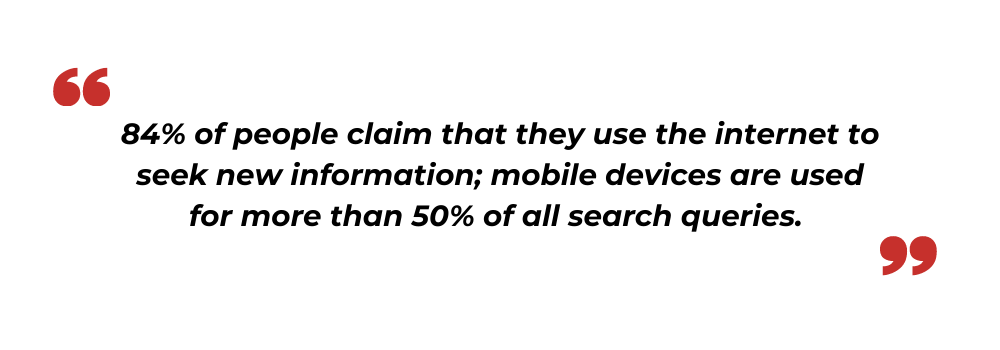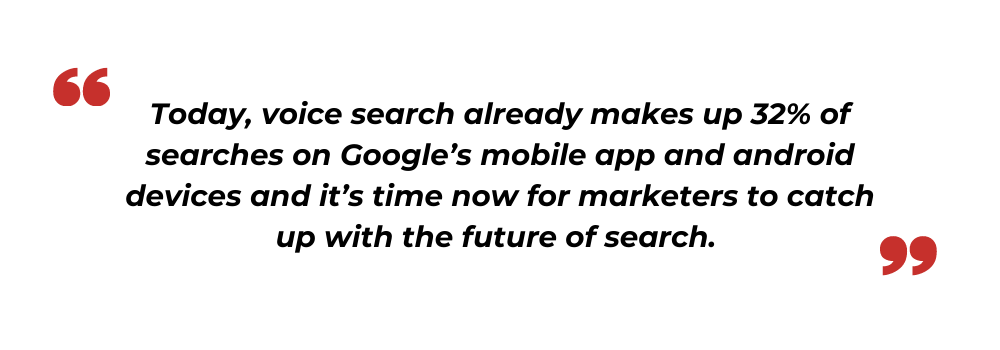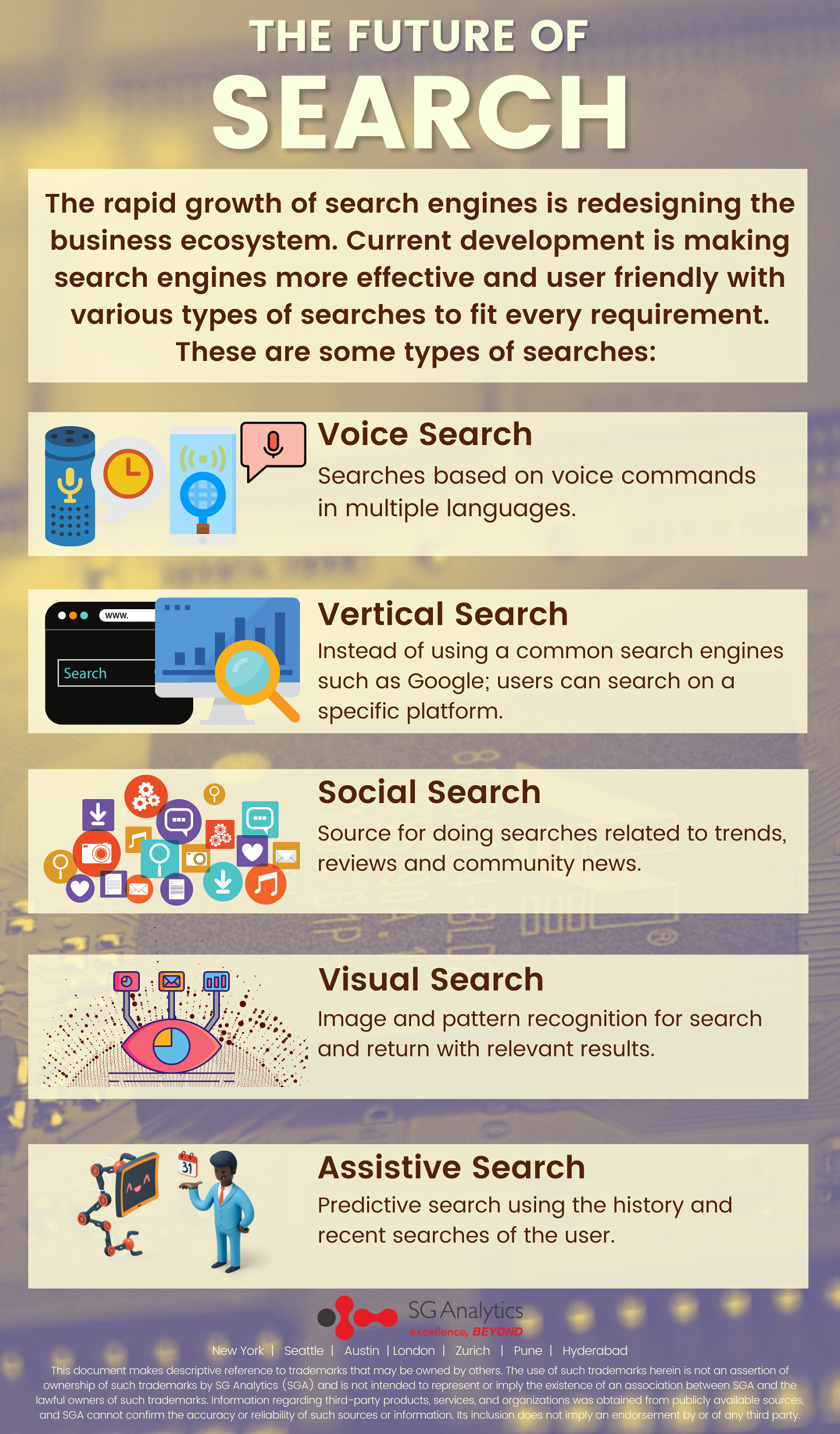The internet search story in the last decade and a half has been shaped and intertwined with Google’s growth and its evolving search algorithms. Simply put, Google is arguably the single most influential element in shaping the internet and internet search. Nearly 1 billion users use Google to search for information on the internet.
The existence of internet search or search engines dates back to the early 80s and certainly predate the debut of the world wide web. However, from a modern-day perspective, Yahoo! search was the first popular user-friendly search engine on the web. Before the introduction of the search function – that allowed average users to find web pages on the interest – in 1995, only a Yahoo! Directory existed. Since then, the evolution of internet search has been astonishing – surpassing many estimates and predictions in a short span of time, a couple of decades to point out.
Latest trends and the future innovation in search
Now that the evolution of search has followed an expected path and trajectory in the recent past, we are becoming certain that the future of search is perhaps even more predictable than early estimates. We can now see that two of the most evident factors shaping the latest trends are Artificial Intelligence (AI) and Machine Learning (ML). These intertwined fields of modern science not only will shape future search engines but will have profound implications on how information is disseminated and how we do business on the internet.

The following are a few key data points that elaborate and emphasize the relevance of the search:
- 84% of people claim that they use internet to seek new information
- Mobile devices are used for more than 50% of all search queries
- 3.4 million people get a new smartphone daily
If we step away from current trends of the search for a moment, we can see that the innovation of future search engines very much lies away from how search is done, perceived, or designed today. Conventional search engines will soon cease to exist and many elements (considered futuristic today) will come together to create future search engines.
A report by Mindshare states that “we’ll move towards a world where the search engine becomes increasingly assistive and proactive”. The report further claims that that the future search engine will be meeting people’s needs even before they are even expressed as a keyword search. Many other industry-wide research points towards a similar future with the following variations of search:
Voice Search
Voice search technology is evolving rapidly and soon users will use voice assistants and hand-held or body-worn devices for very simple, day-to-day life queries, such as location of stores, weather, traffic, nearby options, and so on. Depending on its evolution – future voice search technology might deliver complex responses to complex search queries – considering users evolve alongside to consume longer and complicated responses in voice form and that, too, on the move. Voice assistants such as Siri, Alexa, and Google Assistant are already helping people accomplish daily chores and soon they’ll evolve to handle delegated responsibilities with ease, like our personal assistants.

Alongside, marketers will also evolve and learn to optimize voice search for the business. Perhaps using long-tail keywords or Google My Business listing inclusion will have some modified influences to gain desirable voice search results. Today, voice search already makes up 32% of searches on Google’s mobile app and android devices, and it’s time now for marketers to catch up with the future of search.
Vertical Search
Another future search engine format would be vertical search – a search function that exists within one website instead of the search engines. The best example of this is Amazon – consumers and customers go to Amazon to find what they want to purchase instead of searching on a search engine to find the desired products. Similarly, MakeMyTrip and TripAdvisor are platforms for seeking travel and tourism-related information, BookMyShow for events and tickets, and so on. People are now using self-contained search engines for their purchase decisions. These examples will soon become the norm and perhaps giants like ‘Google’ and ‘Apple’ will come up with their own dedicated competitive platform to counter them.
Social Search
Then similarly, people will increasingly start using social platforms such as Twitter and Facebook to seek information – especially community news, local happenings, and so on. These days news platforms are increasingly adapting to online information dissemination through such platforms and even messaging platforms such as WhatsApp. Powerful media organizations are such as The Times and BBC are developing their own search functions for information dissemination.
Visual Search
Then there is a new promising search format – visual search, which is becoming popular today. The most prominent example of this is Google Lens – which uses image recognition technology to take any photo and provide search results with similar shapes, patterns, colours or textures, and so on. Soon, the visual search might evolve further and provide you with the option of ordering food or groceries by taking a photo or giving you a detailed recipe of a dish, you like but do not know the name of.

Assistive Search
Assistive search is very much similar to search using voice commands, in fact, the basic principle is identical and is likely to expand to all future search engine forms – voice, visual and text. Increasingly, AI will help predict our search queries and look for our desired locations from our browser history, past and recent queries. Today, all of us take help from voice assistants for scheduled tasks, meeting reminders, repeat purchases, and so on. Assistive search will take things a bit further and would try to deliver us things before we can seek them on our own.
How would this impact marketers and businesses?
One point is pretty much certain: these future predictions indicate that the existing content discovery model will make way for direct answer-search mechanisms. Depending on our requirements, future search engines will be our market, our stores, our newspapers, and essentially our ‘Web’. Instead of providing answers, we’ll be provided with products and services in response to our queries. Considering all these, we know that the future of search will be:
- Artificial Intelligence– and Machine Learning-driven
- Brand-driven
- Sensory and predictive
- Mobile (on-the-go)

Marketers can draw a few important observations which are as follows:
- Keywords and content must consider the conversational nature of voice and assisted searches
- Usage of longer ‘long-tail’ phrases
- Question-orientated searchers will take prominence – hence, Q&A content and FAQs are must
- Consider consumers’ needs and look for providing direct solutions and services
- Partner with large key players such as Google or Amazon as well as partner with platforms of your product domain
- Develop custom style sheets (CSS) for all forms of popular connected devices
- Consider building brand pages in Amazon and other e-commerce pages
- Use quality product images to an index server
Final thoughts
Very soon, a new era of Search Marketing may take precedence over other forms of marketing. Every single step toward a new element of search evolution – voice, image, or assisted search, will take us away from our preoccupation with a Google-like search platform.









